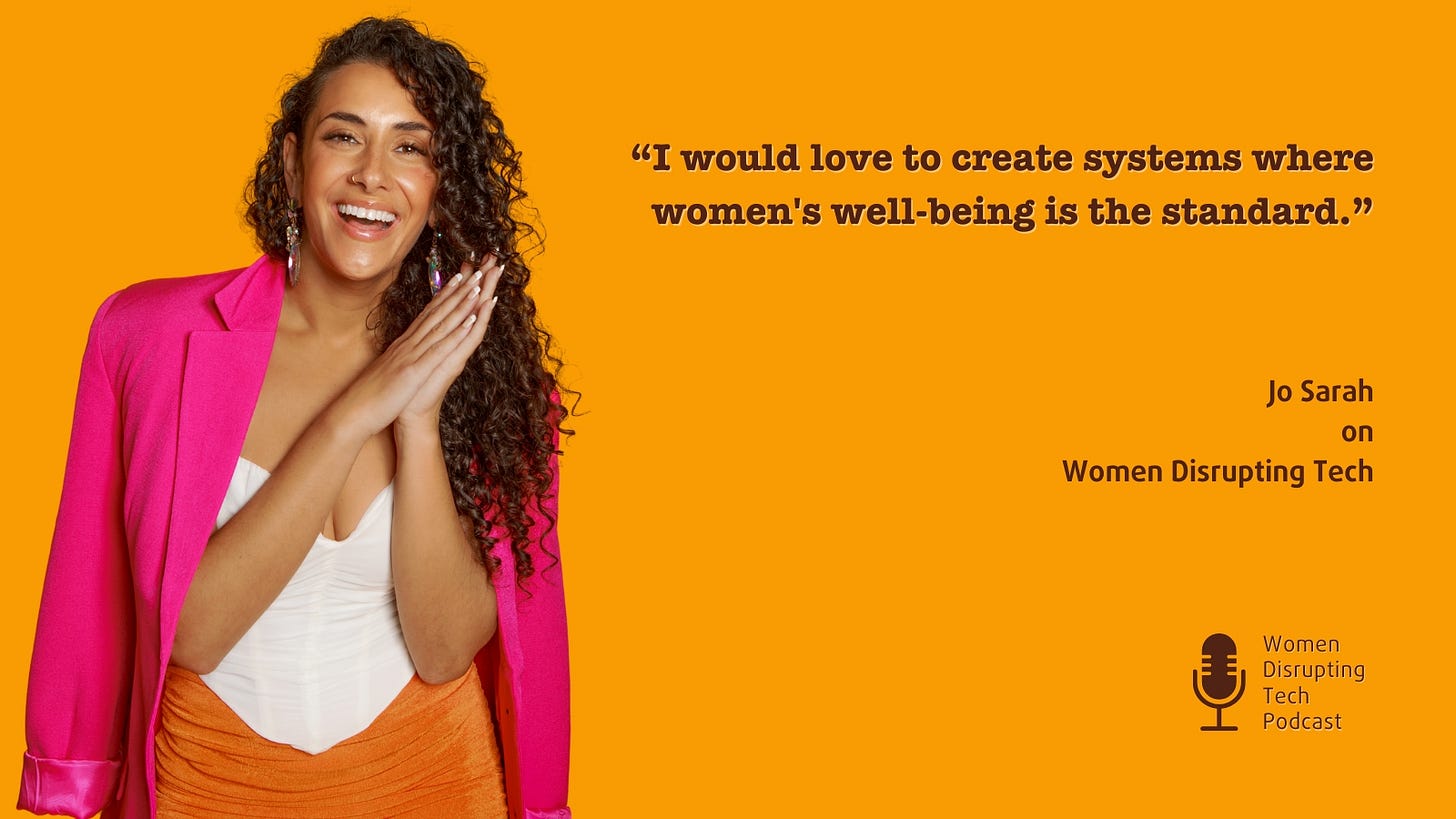We don’t teach our children about the female anatomy. And education about hormonal cycles (including the differences between men and women) is virtually non-existent.
As a result, women are disconnected from their bodies.
They’re told to push through the pain.
They’re misdiagnosed.
They burn out.
And that comes at a huge cost to society.
So, Jo Sarah decided to build Umaversity to help women reconnect with their bodies to reclaim power, pleasure, and (of course) health. In episode 108, she shares her journey.
This conversation isn't just enlightening. It is open, vulnerable, and deeply human.
🌱 Key Takeaways
At the start of our conversation, Jo shares that women are disconnected from their bodies.
1. Disconnection is strategic and costly.
There’s a reason we don’t teach children about female genitals and hormone cycles. Or talk openly about periods, postpartum recovery, or sexual pleasure. As Jo Sarah puts it, “Silence is strategic. Patriarchal, colonial, and capitalist systems benefit when women are disconnected from their bodies.”
That silence doesn’t just affect women, though. It ripples through relationships, careers, and entire economies.
2. Knowledge is power, and pleasure.
Many women only learn about their bodies after something goes wrong.
Umaversity offers a different path: proactive, culturally rooted, science-informed learning that gives women the tools to take ownership of their mental, bodily, and sexual well-being.
And it doesn’t stop at education. It’s about creating safe, judgment-free spaces to ask, explore, and heal.
3. Healing is systemic. And so is hope.
Jo Sarah isn’t trying to fix individuals. She’s building ecosystems of care.
As she puts it:
“I would love to create systems where women’s well-being is the standard.”
That means inclusive experts, trusted allies, multicultural perspectives, and leadership rooted in self-compassion. Not perfectionism.
To listen to Jo Sarah’s story, hit the play button or find the episode on Spotify, Apple, or YouTube.
3 Magical Quotes from Episode 108
This conversation was unlike any I’ve had before: brutal, raw, and deeply honest. Here are three quotes, including timestamps, so you can easily find them.
✨ “This disconnection steals energy, creativity, confidence — and it costs society more than we realize.” 🕒 06:19–06:25
When Jo Sarah talks about disconnection, she means the disconnect from our bodies, cycles, and needs. And the cost is real: When women are disconnected from their bodies, the impact isn’t just personal. It affects families, workplaces, and communities.
✨ “If I ask other people to be vulnerable, I need to be vulnerable myself.” 🕒 25:14–25:19
Jo Sarah leads by example. She shares her personal journey, including a rare health condition. Not to inspire pity but to build trust and model what safety actually looks like.
✨ “I would love to create systems where women’s well-being is the standard.” 🕒 Around 51:49
Umaversity is more than a dream. It’s a blueprint for future workplaces, schools, and leadership cultures. Imagine if health equity wasn’t a perk but a foundation of a better society.
What would your workplace, your relationships, and your community look like if women's well-being was foundational rather than optional? Leave a comment to tell us.
“I would love to create systems where women’s well-being is the standard.” - Jo Sarah, Founder and CEO of Umaversity.
Things Allies Can Do To Improve Women's Health
Towards the end of our conversation, I ask Jo Sarah how allies can support women on their health journey. Here are three practical tips that allies can start implementing today.
1. Start with curiosity, not assumptions.
Ask questions. Learn how shame, trauma, and silence show up differently across cultures and generations.
2. Make space for women to speak, on their terms.
Whether in meetings, panels, or policy discussions, inclusion isn’t just about being present. It’s about being safe to speak and be heard.
3. Support platforms that break taboos.
Follow, fund, and amplify initiatives like Umaversity that combine lived experience with real-world impact. Allyship isn’t neutral; it’s active.
Know someone who should read this? Share the post with them.
Coming up on Women Disrupting Tech
Next week, we return to the world of tech and hear from Cyberette founder Julia Jakimenko how she helps to prevent fraud by helping companies detect deep fakes.
In this clip, Julia explains what a deep fake is and how criminals use it.
Listen to the episode to learn how you can spot deep fakes and prevent them from scamming you out of your money.
Final Thoughts
The conversation with Jo Sarah reminded me that systems are built by people. And that means people, like you and me, can rebuild them.
One question I’m taking with me from this episode:
What would change if we treated women’s well-being as the default, not the exception?
Let’s not just imagine that world.
Let’s build it.
🎧 Listen to Episode 108: How Umaversity Helps Women Reclaim Power, Pleasure and Health on Spotify, Apple, YouTube or Amazon.
And until the next episode, stay curious and Keep Being Awesome!
Dirkjan














Share this post